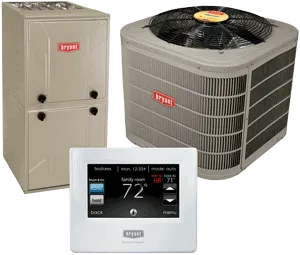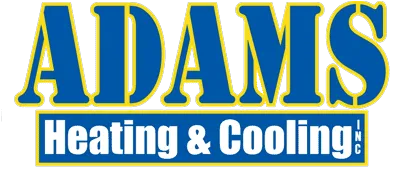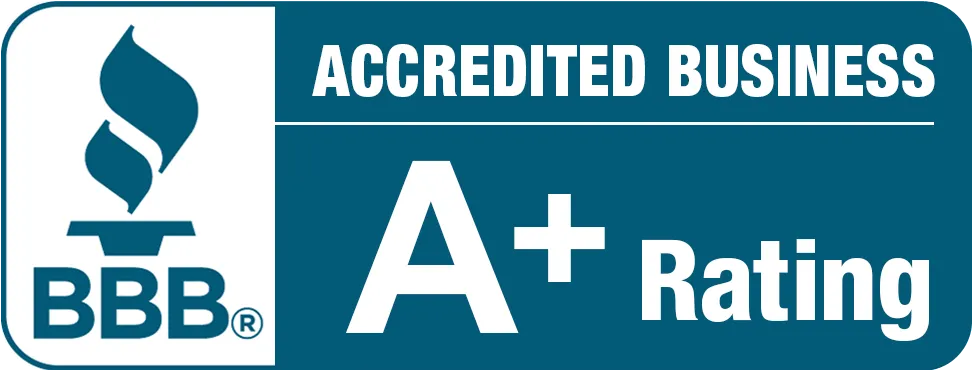Adams Heating & Cooling
HVAC Experts You Can Trust
Serving Tuscaloosa, AL, Birmingham, AL, and surrounding areas since 1982

Heat Pumps vs. Gas Furnaces: Which is Better?
We like to have options. When we go to the grocery store and walk down the coffee isle that reality becomes apparent. The choices are limitless. And if you’ve ever had that “where do you want to eat” conversation with your significant other then you know that its not always easy to decide.
When it comes to heating or cooling your house in the Tuscaloosa area, however, most people come to a choice between two basic options. Should I go with a heat pump system or a gas furnace with an AC condensing unit? While there are advantages to either choice, here we will consider a few benefits of the heat pump. While both options effectively keep your home warm, heat pumps offer several advantages that make them a more efficient, cost-effective, and environmentally friendly choice. Below, we explore why a heat pump might be the better investment for your home’s heating needs.
Superior Energy Efficiency
One of the most significant advantages of a heat pump is its efficiency. Unlike gas furnaces, which generate heat by burning fuel, heat pumps transfer heat from the outside air (or ground) into your home. This process requires less energy, as it simply moves heat rather than creating it.
Heat pumps can achieve efficiency rates of up to 300-400%, meaning they produce three to four times more heat energy than the electrical energy they consume. In contrast, even the most efficient gas furnaces max out at around 98% efficiency. This means heat pumps not only use less energy but also reduce your monthly utility bills.

Energy Savings for a Tuscaloosa Homeowner
A homeowner in Northport replaces an aging electric furnace and AC unit with a high-efficiency air-source heat pump rated at SEER 18 and HSPF 9.5. The switch results in a 35% reduction in energy consumption, cutting their monthly electricity bills by $50–$100 during peak summer and winter months.
Performance in Mild Winters
Unlike gas furnaces that operate at 98% efficiency at best, a heat pump in Tuscaloosa’s winter climate achieves efficiency rates of 300-400%, since the temperature rarely drops below freezing. A homeowner in Cottondale finds that their new heat pump maintains warm indoor temperatures at a fraction of the cost of electric resistance heating.
Year-Round Comfort with Smart Controls
A family in Holt installs a variable-speed heat pump with smart thermostat integration. The system automatically adjusts its output based on indoor and outdoor temperatures, optimizing comfort while keeping energy costs low. Compared to their previous single-stage HVAC system, they experience quieter operation, improved humidity control, and 30% lower cooling costs during Tuscaloosa’s humid summers.
Lower Cooling Costs in Hot Summers
During July and August, when temperatures in Tuscaloosa frequently exceed 90°F, a traditional air conditioner can struggle to keep up with cooling demands. A high-efficiency heat pump in a Brookwood home maintains comfort at 20-30% less energy consumption compared to a standard central AC system, leading to significant savings on summer electricity bills.
Local Utility Incentives and Rebates
Residents in Tuscaloosa County can take advantage of Alabama Power’s energy efficiency programs, which offer rebates for homeowners who switch to a heat pump. A homeowner in Vance receives a $500 rebate for upgrading their inefficient electric furnace and window AC units to a new ducted heat pump system, reducing their annual energy expenses by $600 or more.
Lower Operating Costs
Because heat pumps use electricity instead of burning fossil fuels, they often cost less to operate. While gas prices fluctuate, electricity is generally more stable, making it easier to predict and manage your heating expenses. Additionally, heat pumps provide both heating and cooling, eliminating the need for a separate air conditioning unit and further lowering overall costs.
For homeowners looking to cut down on their monthly expenses, investing in a heat pump can provide significant savings over time.
Environmentally Friendly Heating
If sustainability is a priority, a heat pump is the clear winner. Since it relies on electricity rather than combustion, it produces significantly fewer carbon emissions than a gas furnace. When paired with renewable energy sources like solar panels, a heat pump can run with virtually zero environmental impact.
In contrast, gas furnaces burn fossil fuels, releasing carbon dioxide and other pollutants into the atmosphere. This contributes to climate change and reduces air quality, making heat pumps a more eco-conscious choice.
Year-Round Comfort: Heating and Cooling in One
A major advantage of heat pumps is their versatility. Unlike gas furnaces, which only provide heat, heat pumps function as both a heating and cooling system. This means you can enjoy warm air in the winter and cool air in the summer with just one unit.
This dual functionality eliminates the need for a separate air conditioner, saving homeowners on installation, maintenance, and repair costs. It also ensures a more consistent and comfortable indoor climate throughout the year.

Improved Indoor Air Quality
Indoor air quality is a crucial factor in maintaining a healthy home environment. Gas furnaces, by burning fuel, produce combustion byproducts such as carbon monoxide, which can be hazardous if there’s a leak or ventilation issue.
Heat pumps, on the other hand, don’t rely on combustion. Instead, they circulate clean air throughout your home, reducing the risk of exposure to harmful pollutants. Many modern heat pumps also include advanced filtration systems, helping to remove dust, allergens, and other airborne contaminants.
Safer Heating Option
Safety is a key consideration when choosing a heating system. Gas furnaces come with risks such as gas leaks, carbon monoxide poisoning, and even fire hazards if not properly maintained.
Heat pumps eliminate these dangers because they don’t rely on gas or an open flame. Their operation is entirely electric, reducing the risk of harmful gas leaks or explosions. This makes them a safer option, particularly for families with young children or elderly residents.
Longer Lifespan and Less Maintenance
One of the significant advantages of heat pumps is their durability and minimal maintenance requirements. Unlike traditional heating systems, such as gas furnaces, which typically last between 15 to 20 years with regular servicing, heat pumps can achieve a similar lifespan when properly maintained. Their longevity makes them a reliable and cost-effective choice for homeowners looking to invest in an efficient heating and cooling system.
In addition to their lifespan, heat pumps generally require less maintenance compared to gas furnaces due to their simpler design. While gas furnaces rely on combustion processes and multiple moving parts that require frequent servicing, heat pumps operate on electricity and use a refrigeration cycle to transfer heat, reducing the risk of mechanical failure.
Routine maintenance for a heat pump mainly involves:

Cleaning or replacing air filters to ensure efficient operation.
Checking airflow to prevent blockages that can strain the system.
Keeping the outdoor unit free from debris like leaves, dirt, or snow to maintain performance.
By contrast, gas furnaces require more extensive maintenance, including:
Regular inspections for gas leaks to ensure safety.
Burner efficiency checks to maintain proper combustion.
Heat exchanger assessments to prevent potential hazards.
Frequent filter replacements to keep air quality and efficiency high.
These additional servicing needs not only increase maintenance costs but also require professional assistance more often.
Overall, the reduced maintenance demands and extended lifespan of heat pumps contribute to their appeal as a long-term heating and cooling solution. Homeowners who choose heat pumps can enjoy greater peace of mind knowing their system is both durable and cost-effective in the long run.
Financial Incentives and Rebates
Many utility companies and government programs offer rebates and tax incentives for installing energy-efficient heating solutions like heat pumps. These incentives can help offset the initial installation cost, making the switch even more affordable.
Gas furnaces, while sometimes eligible for rebates, don’t typically offer as many financial incentives due to their reliance on fossil fuels.
Reduced Noise Levels
Modern heat pumps operate quietly, making them a great option for homeowners who prefer a peaceful indoor environment. Traditional gas furnaces can be noisy when they cycle on and off, while heat pumps run at a more consistent and lower sound level.
This is particularly beneficial for homes where noise reduction is a priority, such as those with young children or light sleepers.
Why Choose a Heat Pump Over a Gas Furnace?
If you’re looking for an energy-efficient, cost-effective, and environmentally friendly heating system, a heat pump is the clear choice over a gas furnace. It provides year-round comfort, improves indoor air quality, enhances safety, and reduces overall energy costs. Plus, with available financial incentives, making the switch has never been easier.
For homeowners like you who value reliability, efficiency, and sustainability, investing in a heat pump is a smart decision. Ready to experience the benefits of a heat pump in your home? Contact Adams Heating & Cooling today for expert guidance and installation services tailored to your needs.

Tired of seeing those sky-high electric bills?
It's time to take control of your energy costs, and your HVAC system is a great place to start!
No more sweating over those monthly expenses!
Grab our FREE checklist to discover simple, yet effective, ways to lower your energy consumption and save money on your electric bill.
Inside this handy guide, you'll find:
Easy-to-follow tips to optimize your HVAC system's efficiency.
Common energy-wasting mistakes to avoid.
Actionable steps to make a real difference in your energy usage.

Free Estimates on Complete System Replacement
Call Now 205-339-6540
Office: 3415 Hargrove Road East,
Tuscaloosa, AL 35405
Office: 1236 Blue Ridge Blvd, Suite 111, Hoover, AL 35226
Call 205-339-6540
Call 205-606-4222
Email: [email protected]





